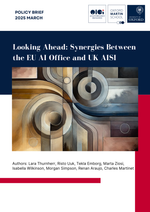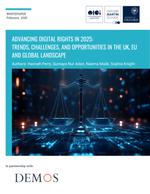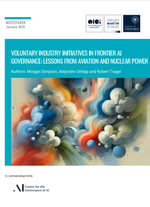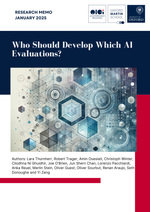Lucia Velasco, Charles Martinet, Henry de Zoete, RobertTrager, Duncan Snidal, Ben Garfinkel, Kwan Yee Ng, Haydn Belfield, Don Wallace, Yoshua Bengio, Benjamin Prud'homme, Brian Tse,Roxana Radu, Ranjit Lall, Ben Harack, Julia Morse, Nicolas Miailhe, Scott Singer, Matt Sheehan, Max Stauffer, Yi Zeng, Joslyn Barnhart, Imane Bello, Xue Lan, Oliver Guest, Duncan Cass-Beggs, Lu Chuanying, Sumaya Nur Adan, Markus Anderljung, Claire Dennis
View Policy PaperThe AI Summit series – initiated at Bletchley Park in 2023 and continuing through Seoul in 2024 and Paris in 2025 – has become a distinct forum for international collaboration on AI governance. Its early achievements, including the Bletchley Declaration, the Frontier AI Safety Commitments, and the International Scientific Report on the Safety of Advanced AI, are a result of its unique format, regular schedule, and ability to secure concrete commitments from governments and industry.
To ensure its continuing impact, the Summit series must now transition from an improvised sequence of summits towards a more formalized structure. For this evolution to succeed, organizers must carefully examine past successes and realistically assess future challenges. This report examines both, with particular attention to a set of core summit design elements: hosting arrangement, secretariat format, participant selection, agenda setting, and summit frequency. Based on this analysis, we present six recommendations to strengthen the summit series’ impact.
The paper draws on existing international governance models to offer recommendations for each design element, addressing challenges such as a crowded summit landscape, geopolitical shifts, and rapid technological change.





